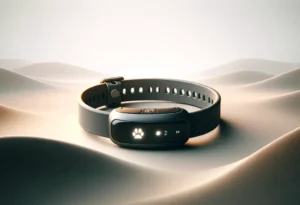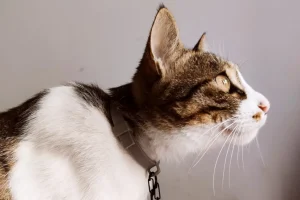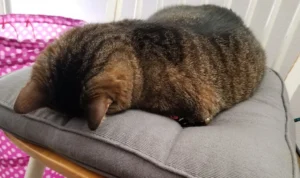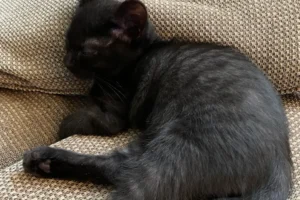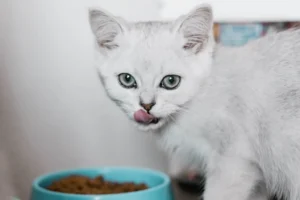Cats are fascinating creatures with unique features, one of which includes their distinctive whiskers. But have you ever noticed your feline friend’s whiskers falling out? If so, you may be wondering why it’s happening. Let’s explore the reasons behind this peculiar phenomenon.
Importance of Whiskers
Whiskers on a cat may seem like just cute little accessories, but they actually play a crucial role in a cat’s life. These long, stiff hairs located on their face are incredibly sensitive and serve as a cat’s very own GPS system.
Imagine whiskers as tiny antennae that help cats navigate their surroundings with precision. They aid in hunting, sensing obstacles, and even detecting changes in the weather. Without these whiskers, a cat could feel disoriented and lose their sense of direction.
So, if you notice your cat’s whiskers falling out, it’s essential to pay attention and monitor their well-being. Ensuring their whiskers are intact is vital for their overall quality of life.
Shedding Cycle
Just like the shedding of a cat’s fur, their whiskers also go through a natural shedding cycle. It’s completely normal for cats to lose their whiskers from time to time, as new ones will grow back in their place.
During this shedding process, you may notice some whiskers scattered around your home or in your cat’s favorite spots. This is nothing to be alarmed about as old whiskers fall out to make way for new ones.
If you observe excessive whisker loss or your cat seems to be experiencing discomfort, it’s best to consult with a veterinarian to rule out any underlying health issues. Keeping an eye on their whisker shedding can help ensure they remain healthy and happy.
Stress and Anxiety
Do you know that just like humans, cats can also experience stress and anxiety? These emotional states can actually contribute to your cat’s whiskers falling out. When a cat is stressed or anxious, they may engage in behaviors such as over-grooming, which can lead to the loss of whiskers. To help your feline friend manage these emotions, provide them with a calm and safe environment. Ensure they have access to their favorite toys, cozy hiding spots, and regular playtime. Additionally, consider using pheromone sprays or diffusers designed to help reduce feline stress.
Health Issues
When your cat’s whiskers start falling out, it could be a sign of an underlying health issue. One common cause is a skin condition such as dermatitis, which can lead to hair loss around the face, including whiskers. Another possible reason could be nutritional deficiencies, as a lack of essential vitamins and minerals in your cat’s diet can impact the health of their fur and whiskers. Ensure your cat is receiving a balanced diet rich in nutrients to promote healthy hair growth. Regular visits to the vet can help identify and address any health issues that may be causing whisker loss.
Unique Insight:
Curious about other potential health issues that could be causing your cat’s whiskers to fall out? Keep an eye out for signs of feline acne, a common condition that can affect cats’ hair follicles and whiskers. Poor grooming habits or an allergic reaction to certain products can lead to feline acne, which may result in the shedding of whiskers. If you notice your cat exhibiting symptoms such as blackheads on their chin or red, inflamed skin, consult with your vet for proper diagnosis and treatment.
Aging Process
As cats age, their whiskers may begin to fall out more frequently. Just like humans, cats experience changes in their bodies as they grow older, and this includes their whiskers. The whiskers of older cats may become more brittle and prone to breaking, leading to increased whisker loss.
Additionally, older cats may engage in less grooming due to reduced mobility or energy levels, which can result in unkempt whiskers that are more likely to break off. To help promote healthy whisker growth in aging cats, it is crucial to ensure they are receiving a nutritious diet rich in essential vitamins and minerals that support overall health, including the health of their whiskers.
Grooming Habits
A cat’s grooming habits play a significant role in the health and maintenance of their whiskers. Regular grooming helps to keep whiskers clean and free from debris, reducing the likelihood of breakage and loss. Cats are meticulous groomers by nature, using their tongues to clean themselves thoroughly.
To promote healthy whisker growth, it is important to provide your cat with regular grooming sessions to help prevent tangles and matting that can lead to whisker breakage. Additionally, be mindful of using gentle grooming tools and products that won’t cause damage to the delicate whiskers.
Tips for Healthy Whisker Growth:
- Use a soft-bristled brush: Opt for a soft brush when grooming your cat to avoid causing damage to their whiskers.
- Regular cleaning: Ensure your cat’s whiskers are free from dirt and debris by gently wiping them with a damp cloth.
- Avoid harsh products: Steer clear of using harsh chemicals or products on your cat’s whiskers that could cause irritation or damage.
Environmental Factors
Cats’ whiskers can fall out due to various environmental factors. Exposure to harsh chemicals, such as cleaning agents or pesticides, can weaken the hair follicles, leading to whisker loss. Similarly, rough surfaces or constant rubbing against abrasive materials can cause the whiskers to break or fall out. It’s essential to create a safe and comfortable environment for your feline friend to prevent unnecessary whisker damage.
Genetic Factors
Genetics also play a significant role in the strength and durability of a cat’s whiskers. Some cats may have inherently weaker whiskers due to their genetic makeup, making them more prone to falling out. Breeds with thicker and sturdier whiskers are less likely to experience whisker loss. While you can’t alter your cat’s genetics, providing a balanced diet rich in essential nutrients can help maintain the health of their whiskers and overall well-being.
Unique Insight : Cats with more active lifestyles are more susceptible to whisker loss due to increased friction and wear on their whiskers. Regular grooming and monitoring can help spot any issues early on.
Interesting Facts About Whiskers
Did you know that a cat’s whiskers are about as wide as its body? These specialized hairs serve as sensory tools that help cats navigate the world around them. Whiskers are deeply rooted in a cat’s skin and are connected to sensitive nerve endings, allowing them to detect even the slightest changes in their environment.
Cats use their whiskers to gauge distances, navigate in the dark, and even communicate with other animals. When a cat feels threatened or scared, their whiskers may point forward to signal aggression. On the other hand, relaxed and content cats have whiskers that are in a more neutral position.
Fun fact: Whiskers aren’t just found on a cat’s face – they can also be located on their legs and backs. These whiskers serve different purposes but are just as important for a cat’s sensory perception.
By understanding the unique role that whiskers play in a cat’s life, you can appreciate why these specialized hairs are so vital to their well-being.
Understanding Whisker Loss
If you’ve noticed your cat’s whiskers falling out, don’t panic! It’s completely normal for cats to shed their whiskers as part of their natural shedding cycle. Just like regular hair, whiskers will grow back over time.
However, if you observe excessive whisker loss or notice that your cat’s whiskers are breaking off at an alarming rate, it may be a sign of an underlying health issue. Factors such as stress, poor nutrition, or skin infections can contribute to whisker loss in cats.
Make sure to monitor your cat’s overall health and behavior to determine if there are any other concerning symptoms present. If you’re worried about your cat’s whisker loss, consult with your veterinarian for further guidance and evaluation.
Remember, keeping an eye on your cat’s whiskers can provide valuable insights into their well-being and help you ensure they are happy and healthy.
Alex, a passionate animal lover, has experience in training and understanding animal behavior. As a proud pet parent to two dogs and three cats, he founded AnimalReport.net to share insights from animal experts and expand his knowledge of the animal kingdom.

